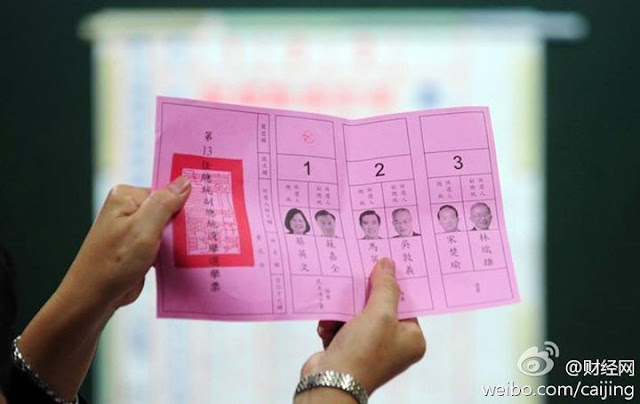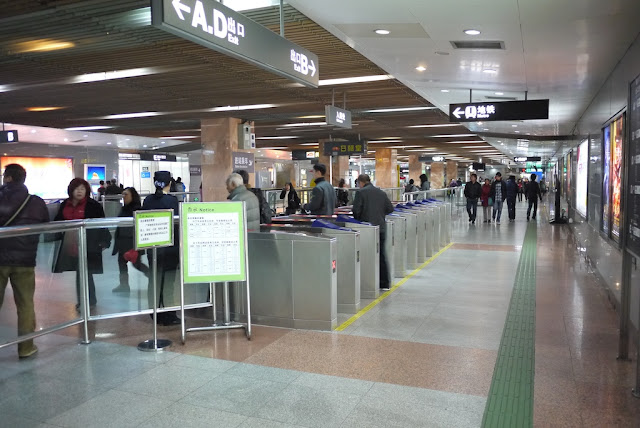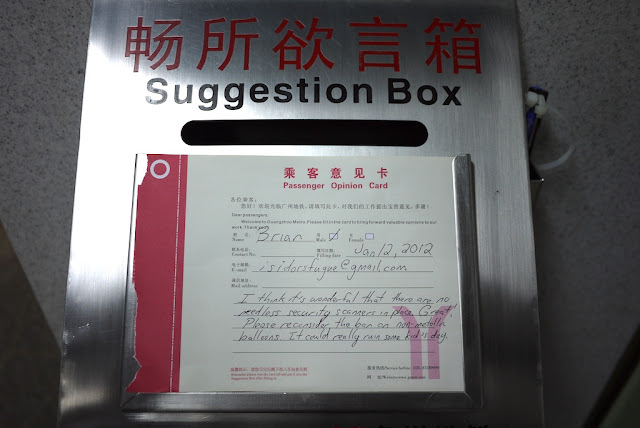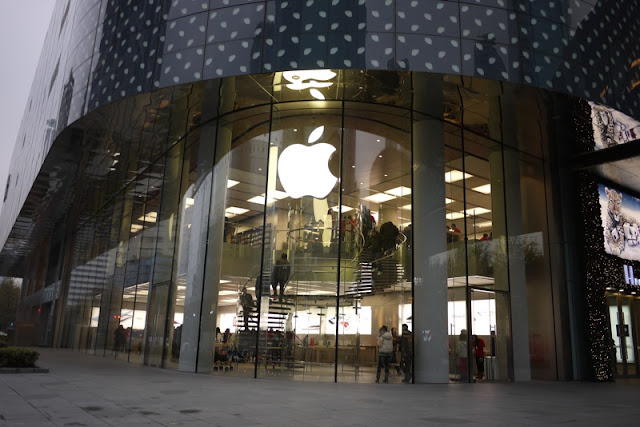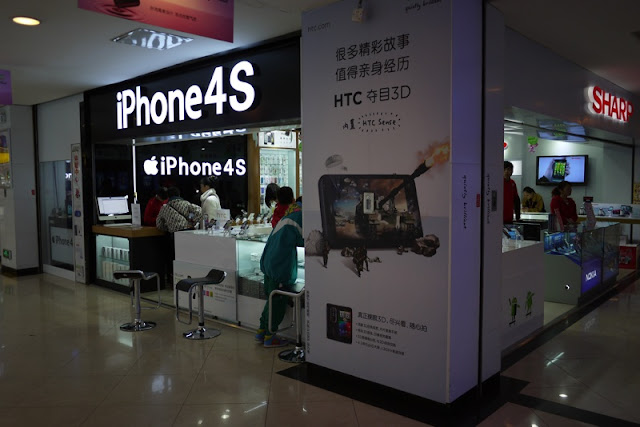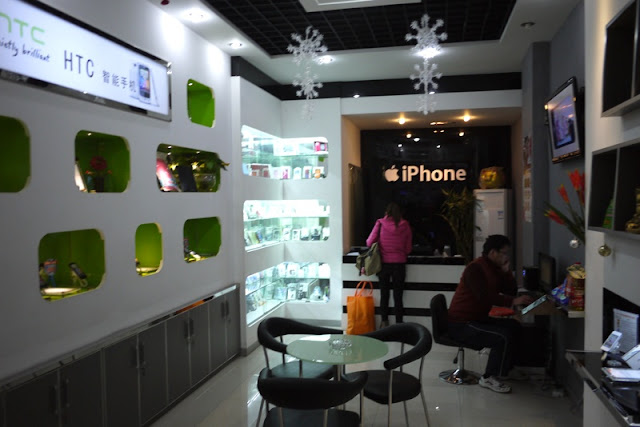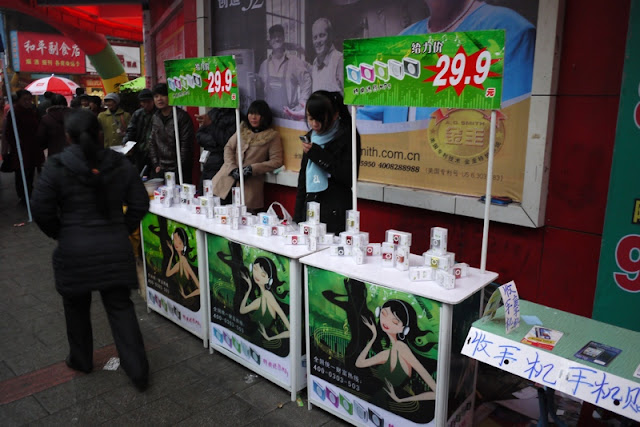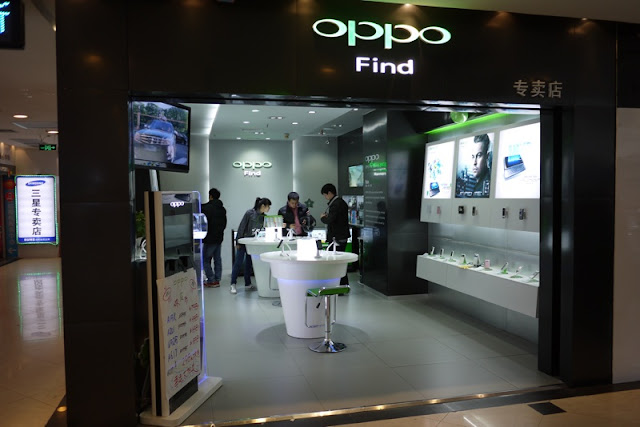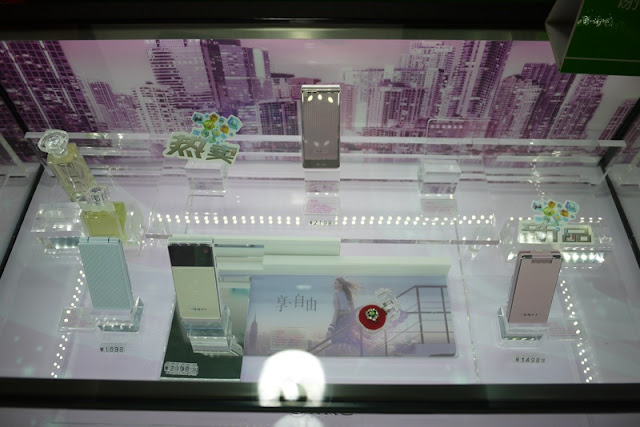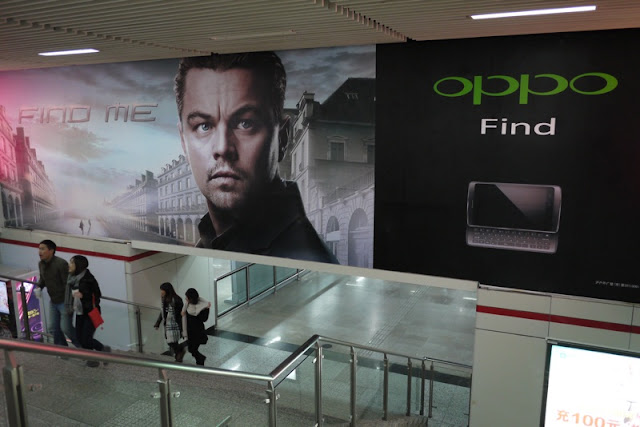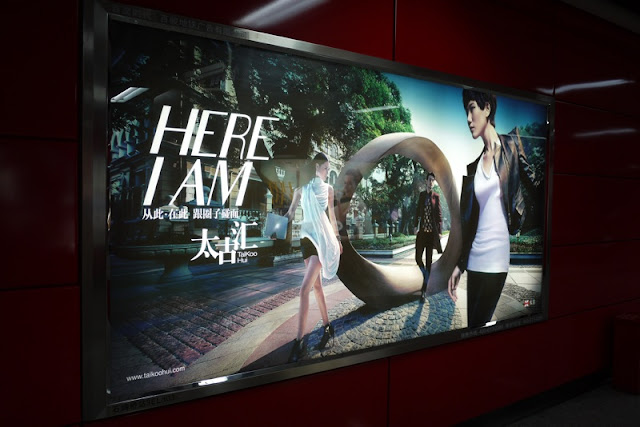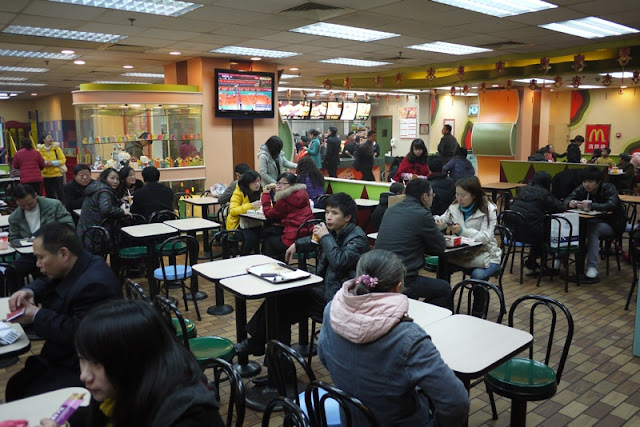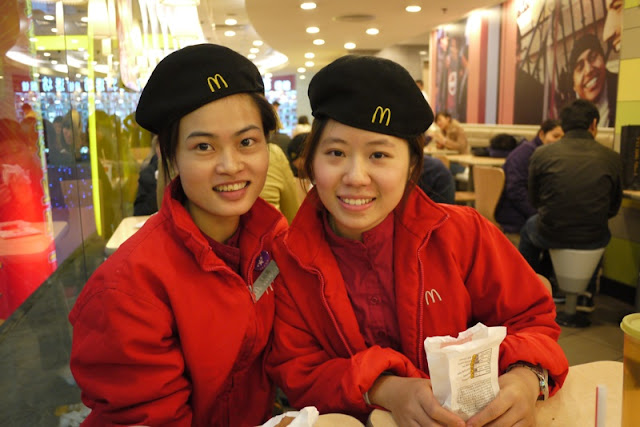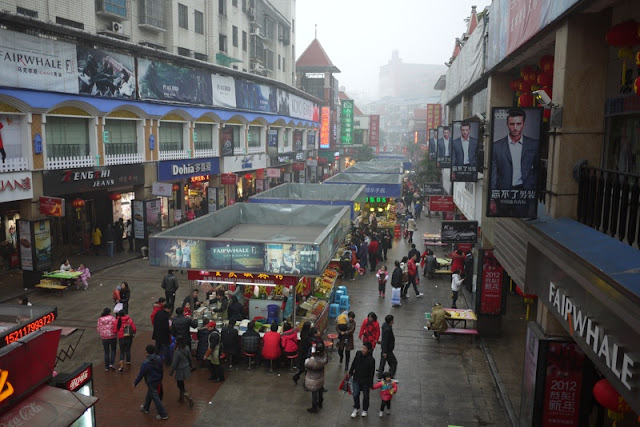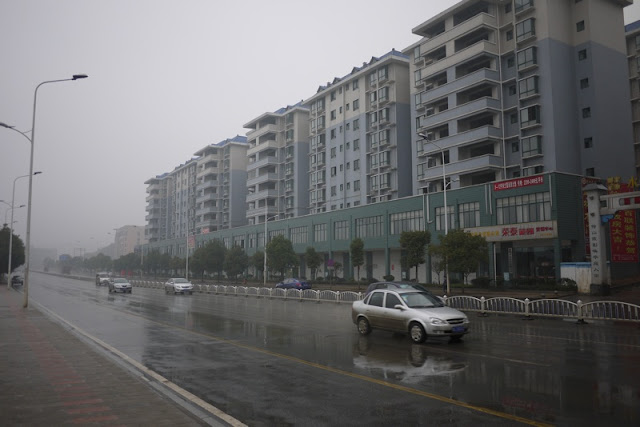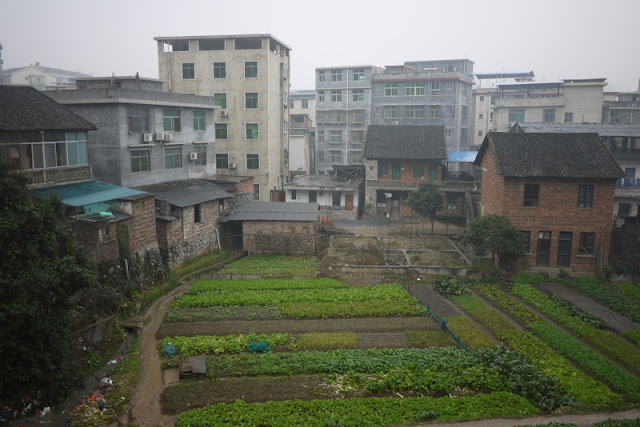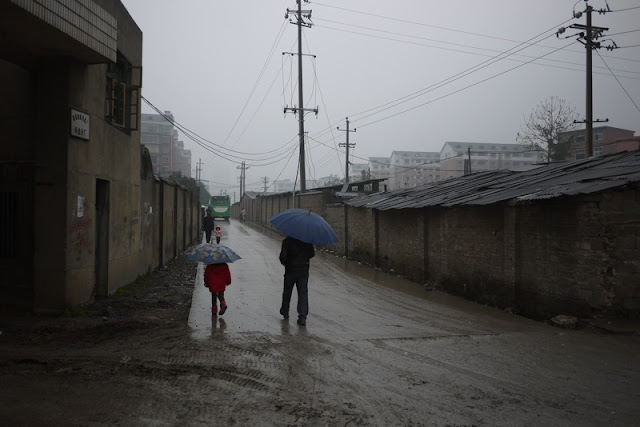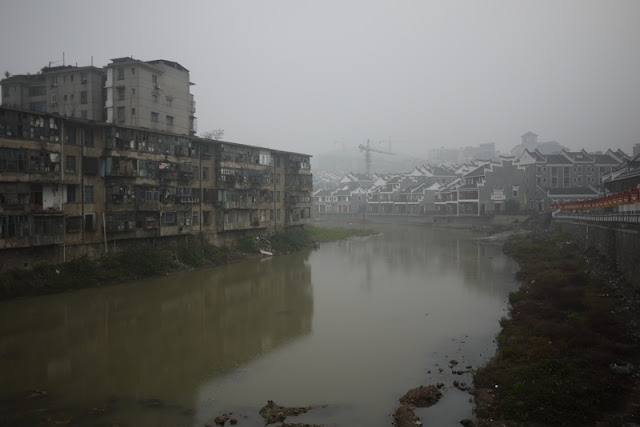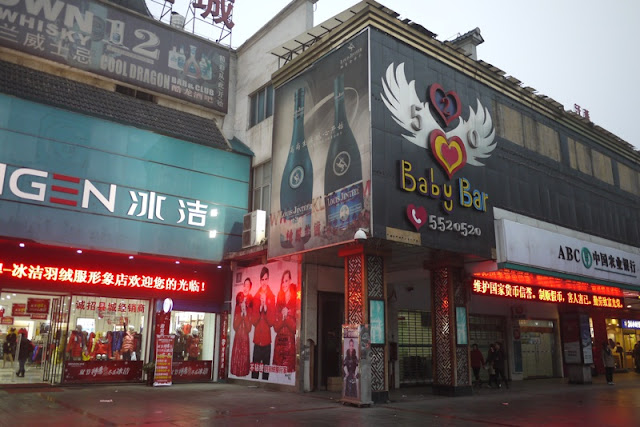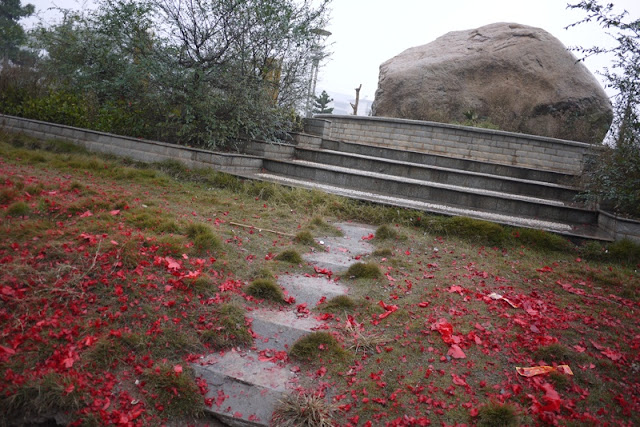I recall the time in November, 2008 when I was watching the live news reports of the results for the United States Presidential Election. Given that I was in Shanghai, it was morning and I was at my office desk. As Barack Obama was speaking after the election results had been announced an American co-worker had tears streaming down his cheeks. This amazed several of our Chinese co-workers, and one of them asked him why Obama's speech was affecting him so much. Seeing democracy in action, especially unfiltered, isn't a common experience in China.
I've sometimes heard people in China express a desire for democracy or a reduction in censorship only to then argue that the Chinese people as a whole aren't ready for it or that it can't work in China's current culture. As I've shared before using access to Facebook as an example, awareness of the freedoms available in Taiwan can have a significant impact on whether some people accept such arguments. Therefore, it comes as no surprise to me that Taiwan's recent election process has caused reverberations in China. As noted by Andrew Higgins in The Washington Post:
While China didn't fully clamp down on reporting of the election (see the NYT story quoted above for more details), the election was apparently enough of a worry for China that it constrained travel to Taiwan during the election. Mark MacKinnon reported on The Globe and Mail that there were even restrictions placed on Chinese traveling in Taiwan during the election:
In short, the video "Unhappy Hong Kong" is from the viewpoint of a Hongkonger expressing admiration for the elections in Taiwan. While Hong Kong is supposed to receive democracy-like rights in 2017 there is much that remains uncertain in the eyes of many Hongkongers. The accompanying text asks whether Chinese people need to be controlled in order for their countries to succeed and considers it a shame that a city as developed as Hong Kong can't enjoy democracy. It also says that Taiwan doesn't desire to become a 2nd Hong Kong, and that the KMT (the party that effectively won the election) is paying more attention to the ideas expressed by the opposition party given the numbers of people who expressed their views peacefully through voting. It also asks the question of whether Hong Kong will forge ahead alongside Taiwan as a pioneer in establishing democracy for Chinese people or will give up and become a puppet of China.
Here's the video (all scenes appear to be from Taiwan):
香港不高興 from MagicHour Studio on Vimeo.
If anyone can provide a formal translation to the video and the description accompanying it on Vimeo I'd be happy to post it.
While there exist a mix of feelings in Taiwan regarding the results themselves and some believe more political reform is required, the election process showed that many valued the opportunity to voice their opinion freely -- whether through speech, voting, or other forms of expression. Their actions have not only had an impact in Taiwan, but in mainland China as well.
UPDATE: Translated version of the video can be found here.
I've sometimes heard people in China express a desire for democracy or a reduction in censorship only to then argue that the Chinese people as a whole aren't ready for it or that it can't work in China's current culture. As I've shared before using access to Facebook as an example, awareness of the freedoms available in Taiwan can have a significant impact on whether some people accept such arguments. Therefore, it comes as no surprise to me that Taiwan's recent election process has caused reverberations in China. As noted by Andrew Higgins in The Washington Post:
Taiwan’s example has raised a prickly question for a leadership [in China] that rejects elections as an alien and chaos-prone Western import, said Zhang Ming, a professor of politics at Renmin University in Beijing.Andrew Jacobs in The New York Times shared other reaction in China:
“Why do all the neighboring countries and regions have direct elections but not China?” Zhang said. Taiwan, he added, “shows that Chinese people can handle democracy, although it’s not perfect” and has “vigorously refuted a fallacy that democracy is not suitable for Chinese.”
As the election played out on Saturday, a palpable giddiness spread through the Twitter-like microblog services that have as many as 250 million members. They marveled at how smoothly the voting went, how graciously the loser, Tsai Ing-wen, conceded and how Mr. Ma gave his victory speech in the rain without the benefit of an underling’s umbrella — in contrast with the pampering that Chinese officials often receive.Another sign of the interest in the election process is a photo of a Taiwanese ballot that the Shanghaiist reports to have gone viral on Weibo, a leading microblog service in China:
While China didn't fully clamp down on reporting of the election (see the NYT story quoted above for more details), the election was apparently enough of a worry for China that it constrained travel to Taiwan during the election. Mark MacKinnon reported on The Globe and Mail that there were even restrictions placed on Chinese traveling in Taiwan during the election:
The 26-year-old tour guide said she has been instructed – by mainland Chinese authorities – to keep her charges indoors until the final results are announced. They’re not allowed to get too close a look at Taiwan’s democracy in action, lest all that choosing proves infectious.The identity of the "authorities" requesting the sequestering of tourists does not appear to be totally clear, and such measures may have only applied to tour groups (it's also not clear to me whether all tour groups followed the same policy). Other Chinese were apparently not as shielded from the election process. Andrew Jacobs noted cases of Chinese traveling to Taiwan and leaving with positive impressions of the election process:
“There are sensitivities,” Ms. Geng explained with a shy smile as her group toured the vast Chiang Kai-shek Memorial (a Lincoln Memorial-style shrine to the man who fought a losing civil war against Mao Zedong’s Communists more than six decades ago) in central Taipei this week. “On Election Day we are not allowed to go out into the street. We have to stay in our rooms [on Saturday] until the results are announced. Then we can go out.”
Interest in the race snowballed in recent weeks and a number of high-profile mainland businessmen decided to travel to Taiwan to see the contest up close. Among them was Wang Shi, one of China’s biggest real estate tycoons, who sent out regular microblog dispatches from political rallies. “Everything went orderly and there were no surprises,” he wrote over the weekend to his four million followers. “The political environment has really matured.”Whether or not democracy is in China's future, it appears that the elections and in particular their peaceful and orderly nature significantly influenced some in China. It has even had an impact in Hong Kong, where people enjoy many freedoms not found in mainland China. As an example, I'll share a short video that was introduced to me by a friend who is a Hongkonger. I don't have a translation of the text in the video, but I'll provide an introduction to the video and a rough summary (not a formal translation) of the text accompanying it on Vimeo (thanks to Yaping Wang for help in interpreting).
Another mainland businessman who spent several days in Taiwan said the election had a profound impact on his understanding of politics. Seated on a plane bound for Beijing on Sunday night, he described how he had been led to believe that Taiwan’s democracy was chaotic and shallow, its elections prone to violence. Not anymore, he said.
“This is an amazing idea, to be able to choose the people who represent you,” said the man, who asked to remain nameless so he could speak without restraint. “I think democracy will come to China. It’s only a matter of time.”
In short, the video "Unhappy Hong Kong" is from the viewpoint of a Hongkonger expressing admiration for the elections in Taiwan. While Hong Kong is supposed to receive democracy-like rights in 2017 there is much that remains uncertain in the eyes of many Hongkongers. The accompanying text asks whether Chinese people need to be controlled in order for their countries to succeed and considers it a shame that a city as developed as Hong Kong can't enjoy democracy. It also says that Taiwan doesn't desire to become a 2nd Hong Kong, and that the KMT (the party that effectively won the election) is paying more attention to the ideas expressed by the opposition party given the numbers of people who expressed their views peacefully through voting. It also asks the question of whether Hong Kong will forge ahead alongside Taiwan as a pioneer in establishing democracy for Chinese people or will give up and become a puppet of China.
Here's the video (all scenes appear to be from Taiwan):
If anyone can provide a formal translation to the video and the description accompanying it on Vimeo I'd be happy to post it.
While there exist a mix of feelings in Taiwan regarding the results themselves and some believe more political reform is required, the election process showed that many valued the opportunity to voice their opinion freely -- whether through speech, voting, or other forms of expression. Their actions have not only had an impact in Taiwan, but in mainland China as well.
UPDATE: Translated version of the video can be found here.

